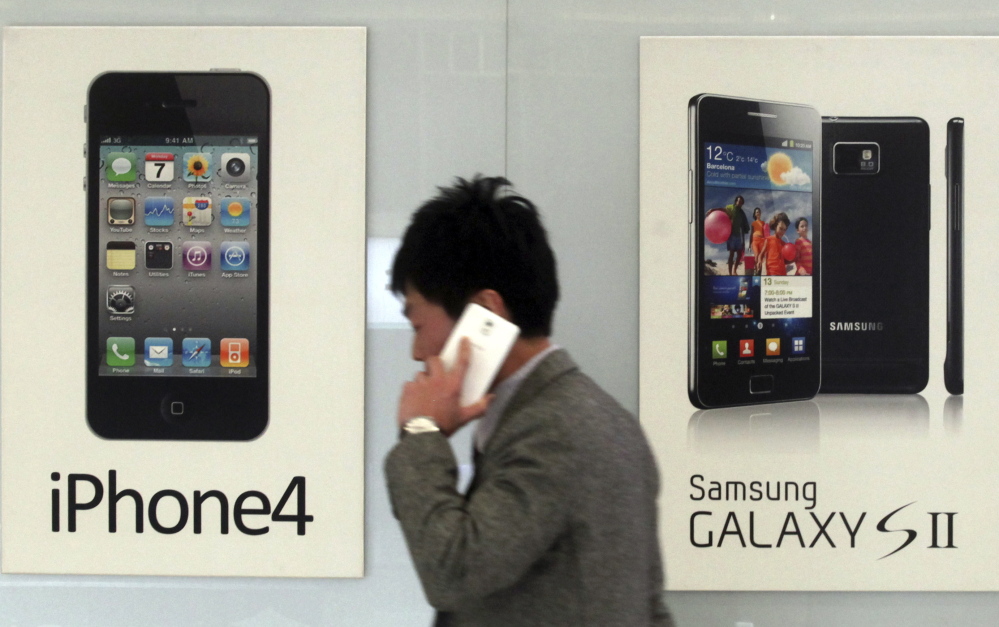SAN JOSE, Calif. — A federal court Monday delayed closing arguments by one day in the patent infringement trial involving Apple and Samsung because of an appeals court ruling in another case on a related issue.
Dueling expert witnesses were called back to the stand in a federal courtroom in San Jose to discuss whether the ruling in a legal dispute between Apple and Motorola has any effect on the Apple-Samsung trial.
The federal U.S. Circuit Court of Appeals in Washington, D.C., on Friday upheld a federal judge’s legal definition of Apple’s so-called “quick links” patent at issue in the dispute between Apple and Motorola. In Silicon Valley, Apple is accusing Samsung of infringing the patent that automatically turns phone numbers and email addresses into links, enabling users to make calls and send messages with a single click.
U.S. District Judge Lucy Koh said the matter was best left for the jury to decide.
Lawyers will begin delivering closing arguments Tuesday, with jurors to begin deliberations when the arguments conclude.
The high-stakes battle between the world’s largest smartphone makers has exposed the cutthroat competition between the two companies.
Each has accused the other of ripping off designs and features as they fought for supremacy of the $330 billion worldwide market.
Apple is seeking $2.2 billion, while Samsung is asking for considerably less.
The judge read jurors 53 pages of instructions Monday explaining how to decide blame and calculate damages.
Teams of lawyers on both sides have spent the month trying to poke holes in obscure and bureaucratic patent legal claims, while keeping the eight jurors engaged.
Drawing the most attention in the courtroom and the media are insider emails and meeting presentations documenting the frustration each company faced as they competed for market share.
Less than a year after Apple unveiled its iPhone in 2007 combining a web browser, music player and phone in one touch-screen device, Samsung officials noted they were quickly losing customers.
But Samsung fought back, using Google’s Android system, offering less expensive smartphones with larger screens.
Throughout the three years of litigation, Samsung’s market share has grown. One of every three smartphones sold last year was a Samsung, now the market leader. Apple, with a typically higher price, was second, with about 15 percent of the global market.
Send questions/comments to the editors.



Success. Please wait for the page to reload. If the page does not reload within 5 seconds, please refresh the page.
Enter your email and password to access comments.
Hi, to comment on stories you must . This profile is in addition to your subscription and website login.
Already have a commenting profile? .
Invalid username/password.
Please check your email to confirm and complete your registration.
Only subscribers are eligible to post comments. Please subscribe or login first for digital access. Here’s why.
Use the form below to reset your password. When you've submitted your account email, we will send an email with a reset code.